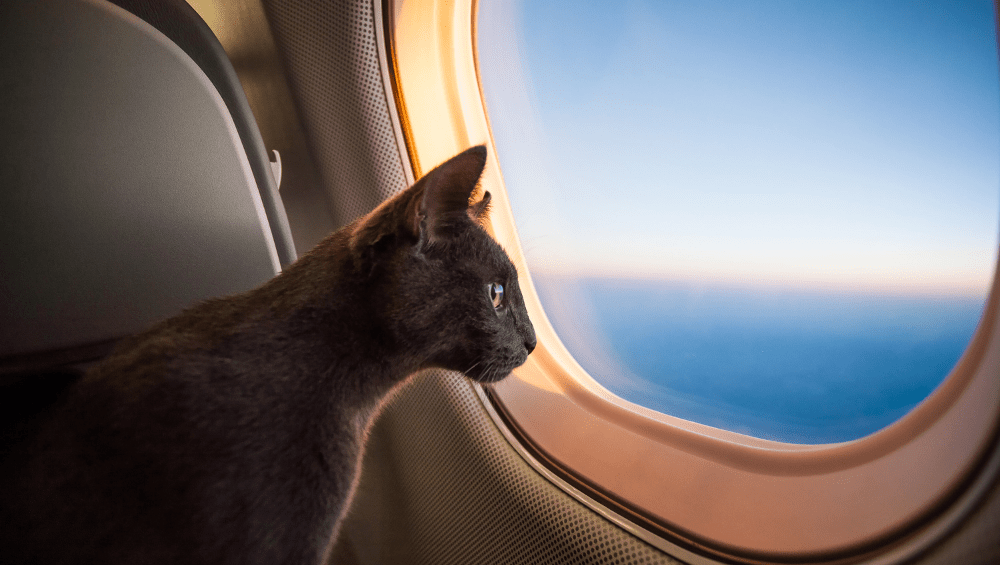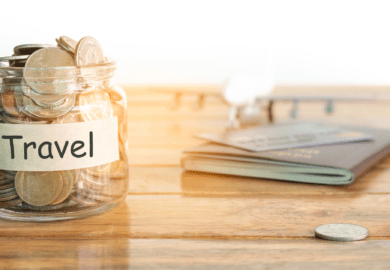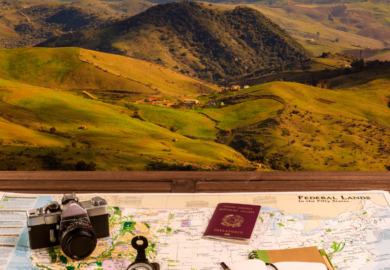Table of Contents
For some people, the thought of flying can make them feel extremely anxious, scared, and uncomfortable. However, traveling by plane has become an essential part of modern-day life, and it offers the possibility to explore the world in ways that we could have never imagined. If you’re one of those people who experience fear of flying every time you board an airplane, you’re not alone.
The good news is that some things can help alleviate your anxiety, making your plane ride more comfortable and worry-free. Let’s discuss the top 15 ways that you can use to conquer your fear of flying and travel with more confidence.

Learn what causes your fear of flying.
If you’re experiencing a fear of flying, it’s essential to understand the root of your fear. Some people are afraid of flying because they lost a loved one in a plane crash. Others may feel anxious about not being in control of the situation, while some may suffer from turbulence or have particular triggers. Whatever your reason, it’s important to learn more about what triggers your anxiety. This way, you’ll be in a better position to develop a more targeted approach to overcome it better.
Do thorough research on flying & aviation.
For many people, the more they learn about the safety procedures and technology that goes into flying, the more confident they feel. Take time to learn more about the planes, the crew, and the entire flying process. You can also read books on aviation, attend flying classes, or watch educational videos on YouTube.
Explore different relaxation and coping techniques.
Many relaxation techniques like deep breathing exercises, meditation, or visualization exercises can help reduce anxiety. It’s also possible to learn other coping mechanisms such as listening to calming music or repeating positive affirmations that can help alleviate worry. If you’re having trouble with anxiety, consider seeing a therapist to help you develop a customized coping strategy.
Take shorter flights to get acclimated.
One way to help you get acclimated with flying is to start off with shorter flights. This can help you form a more positive relationship with the idea of flying and gradually increase your exposure time in the air until it becomes easier for you. You can also try scheduling nonstop flights when possible, as this will reduce the amount of time that you need to be on the plane.
Travel with someone you trust.
When going on a flight, it can be beneficial to bring someone that you trust along. This person can help provide emotional support and company while in the air, which may help alleviate your anxiety levels. If you don’t have anyone to travel with, consider joining a support group of people who share the same fear of flying and anxieties as you.
Get plenty of rest before flying.
It’s essential to get enough rest before a flight to ensure that you’re in the best possible state of mind. Try going to bed early the night before your flight, as this can help reduce stress levels and make it easier for you to relax during the journey. Additionally, be sure to bring some healthy snacks and drinks onboard so that you stay hydrated and energized during the trip.
Consider Herbal & Natural Remedies.
Herbal remedies like chamomile tea and lavender oil have calming properties that can help reduce stress and anxiety. Similarly, natural supplements such as Valerian root or passionflower extract can be taken before flying to help relieve tension. Note: It’s important to consult your doctor before using any of these remedies, as some may interact with medication or be unsafe in certain situations.
Challenge yourself and reward yourself.
Challenge yourself to stay in the present moment and focus on positive thoughts. Remind yourself that you can get through the flight with courage and strength, and make sure to reward yourself afterward for making it through the journey.
Be prepared for takeoff & landing.
Prepare for takeoff and landing by packing noise-canceling headphones or an eye mask so that you don’t feel overwhelmed by the loud noises of the plane. Additionally, try bringing along some distracting items such as a book, crossword puzzle, or soothing music to help keep your mind occupied while on board.
Stay away from caffeine or alcohol before flying.
Caffeine and alcohol are known to heighten our levels of anxiety, so try to avoid them before boarding a plane. Instead, opt for calming teas such as chamomile, peppermint, or lavender tea. These can help relax your nerves and provide a sense of calmness.
Get up & move around if possible.
When flying, it’s important to stay active and get up and walk around as much as possible. This can help reduce your anxiety levels by providing distractions from the noises of the plane. If you’re feeling particularly anxious before take-off or during turbulence, try getting out of your seat to stretch your legs or do some breathing exercises.
Remember, turbulence is normal.
Turbulence is a common phenomenon when flying and it can be unnerving for many people. However, it’s important to remember that despite feeling uncomfortable, turbulence is typically harmless and poses no threat at all to passengers who are on board. When faced with turbulence, try distracting yourself by reading or listening to
Speak to your doctor or therapist if necessary.
A psychologist or psychiatrist can help you better understand and manage the source of your anxiety, as well as provide tailored treatments such as Cognitive Behavioral Therapy (CBT) and Exposure Therapy which can help you gradually desensitize to your fear of flying. Medications such as anti-anxiety or sedatives may also be prescribed to alleviate symptoms of panic or anxiety while traveling.
Use distractions during your flight.
When planning your trip, think about items that can distract you while on board. This could include items such as books, music, or movies that keep your mind busy, preventing you from dwelling on your anxiety. You can also try engaging in conversation with your neighbor or writing in a journal to help quell your anxiety.
Recognize your progress.
Although it may not seem like it, overcoming your fear of flying can take time. It’s important to track your progress, highlight wins, and recognize the areas where you still need to improve. Celebrate each step forward, even the small ones, and keep the end goal in mind and determination.
Conquering Your Fear of Flying
By following these tips, you can help reduce your fear of flying and anxiety about flying and travel with more confidence. Remember that overcoming any kind of fear takes time and patience; it’s important to be kind to yourself as you work through the process. With enough practice and support, you’ll eventually be able to enjoy traveling by plane without feeling overwhelmed.

54 Travel Apps You Absolutely Need Before Your Next Trip
With smartphones and apps at our fingertips, there are so many ways to make traveling easier. Whether you are planning a dream vacation or simply looking for some essential travel hacks, having the right apps can be invaluable.
Find out the best 54 Travel Apps You Absolutely Need Before Your Next Trip!
FAQs about Conquering Your Fear of Flying
Remember, millions of people travel on planes every day without issue. Experiment with different coping strategies to see what works for you, and don’t be afraid to seek help if you need it. Once you can finally lift off without fear, travel will become something you can finally enjoy.
How do I know if I’m ready to fly?
If you feel confident enough that you can go through the entire flight process without significant anxiety, then chances are you’re ready to take off. Take your time and don’t rush into anything until you feel completely comfortable.
How common is the fear of flying?
It’s estimated that around 6-7% of the population suffers from a fear of flying. It’s more common than most people think, and there are plenty of ways to overcome it.
What can I do if my fear of flying is too strong?
If your fear is starting to feel overwhelming or unmanageable, consider seeking help from an experienced therapist or psychologist who specializes in treating anxiety disorders. They can provide guidance on how to better manage your symptoms and develop strategies for overcoming your fear of flying. With their help, you’ll be ready to take off in no time!
How long does it take to overcome a fear of flying?
That really depends on each individual; some people may find it easier to conquer their fear in a few weeks or months, while others may take longer. It’s important to be patient with yourself and recognize that it can take time.
How can I stay calm during turbulence?
Turbulence can be unsettling, but it’s important to remember that it is normal and doesn’t pose any actual danger. To stay calm during turbulence, focus on your breathing and try to distract yourself by reading a book or listening to music. It may also help to get up and move around the cabin if possible.
Are there any relaxation techniques I can use before my flight?
Yes! Relaxation techniques such as deep breathing exercises, progressive muscle relaxation, and guided imagery can all help reduce anxiety levels before your flight. You can also try using essential oils or aromatherapy for an extra boost of calming energy.
What should I do if I have a panic attack on a plane?
If you experience a panic attack while on a plane, it’s important to focus on your breathing and try to stay calm. Remind yourself that the feeling will pass soon and that turbulence is safe and normal. It can also be helpful to distract yourself with something like reading or listening to music until the attack passes. Speak to your doctor if your panic attacks become frequent or unmanageable.
What are some tips for flying alone?
Flying alone can be intimidating, but there are ways to make it more manageable. Try bringing along items that can help distract you such as books, music, or a journal. It may also be beneficial to join a support group of people who share the same fear as you so that you don’t feel alone. Lastly, practice self-care and be sure to get plenty of rest before your flight.
How can I stay calm during takeoff?
Takeoff can be a particularly anxiety-inducing time for many people. Before the plane takes off, focus on calming yourself through deep breathing exercises or listening to soothing music. You may also find it helpful to look out the window and observe the clouds or try talking to someone seated next to you.



